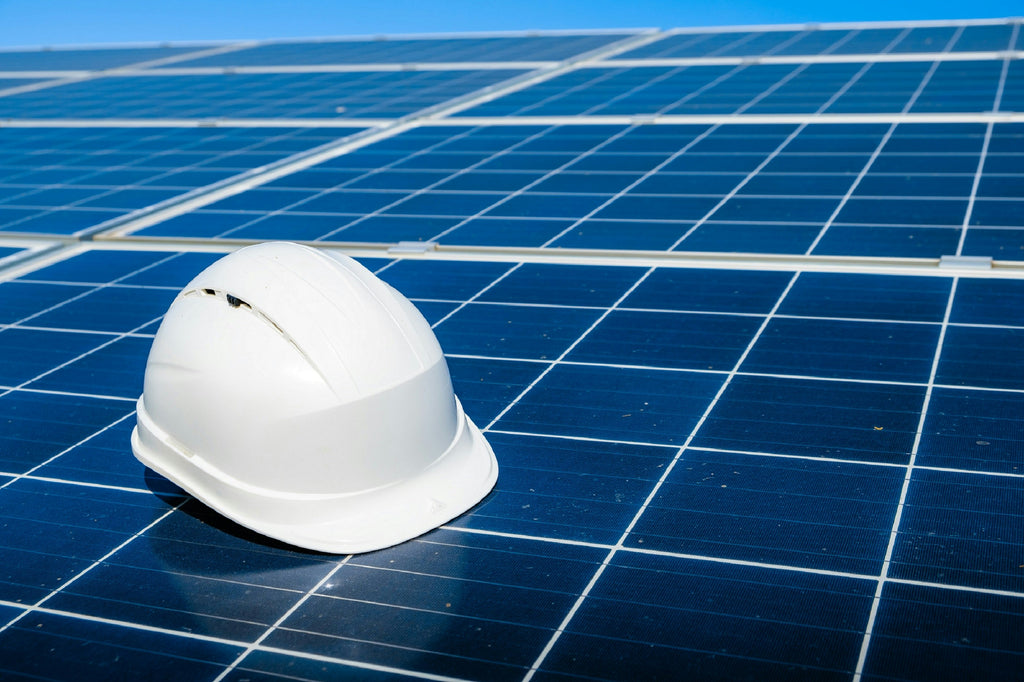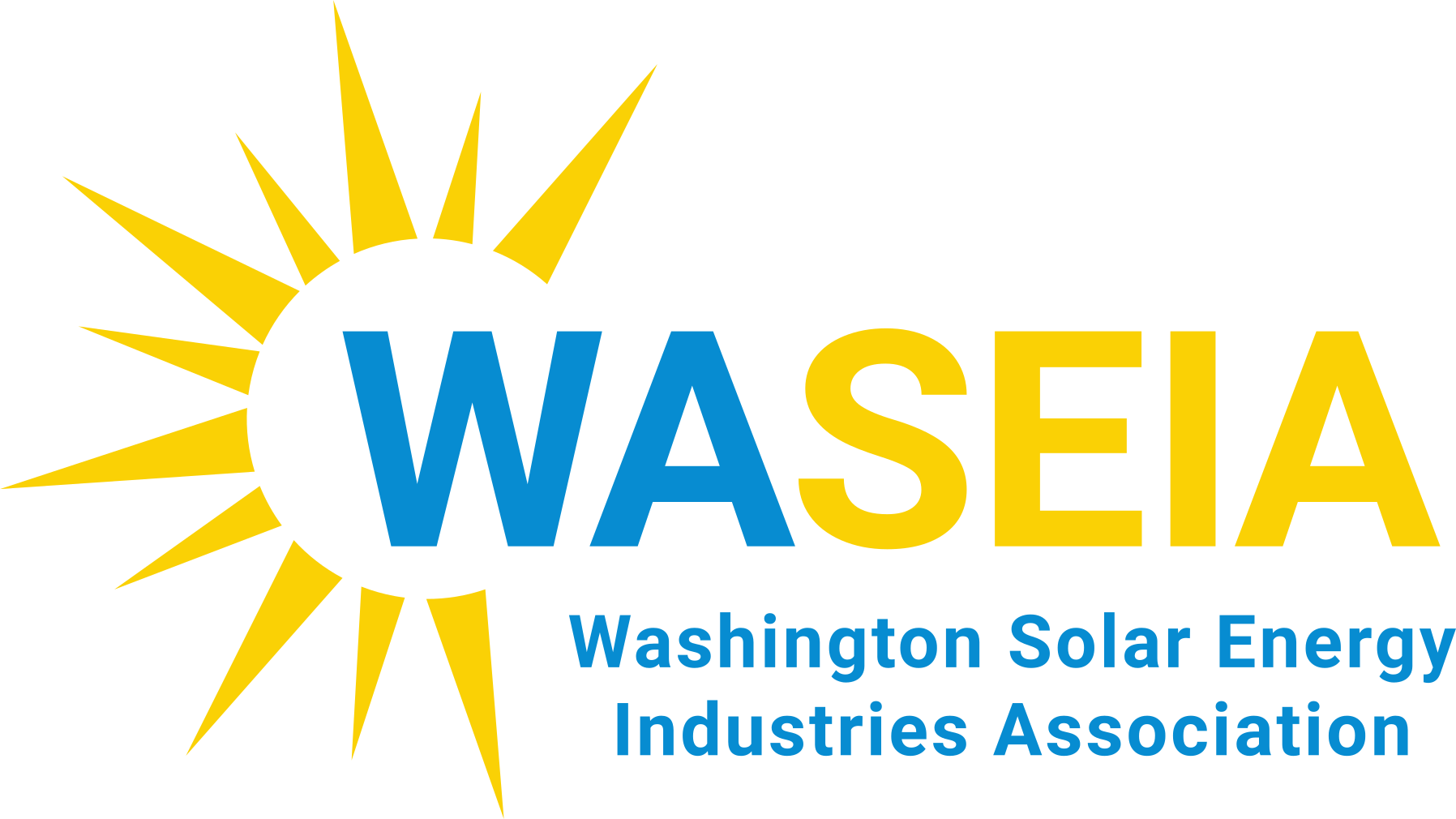Vote NO on 2117 this November

Sun Path Electric and our customers are fighting for a clean energy future for Washington, one solar installation at a time. And yet, just as our state is on the cusp of making real strides toward a sustainable future, a right-wing megadonor has put in $6 million of his own money to add a dangerous initiative to November’s ballot that could rollback recent progress.
If Initiative 2117 passes, it would repeal the Climate Commitment Act (CCA), resulting in increased pollution and the loss of funding for various clean energy projects in Washington. Additionally, it will cut investments in clean air and water, forests and farmlands, jobs and transportation across the state. Without these funds, Washington will struggle to meet its climate goals and many communities, especially those overburdened by pollution, will face greater challenges in achieving environmental and economic justice.
Sun Path Electric strongly opposes I-2117. As part of our clean-energy community, we hope you will too.
Take Action: Pledge to Vote NO on I-2117
Here’s more about why you should vote NO on I-2117 this November.
I-2117 Will Hurt Washington’s Solar Industry
I-2117 proposes to roll back critical incentives that have been instrumental in making solar energy more affordable and accessible for Washingtonians. These incentives not only help reduce the upfront cost of installing solar panels but also ensure long-term savings for homeowners and businesses.
Under threat are state programs that provide financial incentives, such as rebates and grants, as well as Washington’s net metering policy, which allows solar energy users to receive credit for the excess energy they produce and feed back to the grid. Plans to fund solar installations on municipal buildings and community buildings will also be postponed or canceled altogether.
The success of these clean energy incentives relies on continued state support, which could be significantly reduced or eliminated if I-2117 passes. Without these incentives, the initial cost barrier may become too high for many families and organizations.
As the transition to renewable energy stalls, Washington-based solar companies and their employees will feel the pinch when the local economy needs them to be prospering. This is the opposite of progress.
I-2117 Will Impede Community-Based Clean Energy Projects
The repeal of the CCA would halt the progress of various community-based sustainability projects designed to enhance climate resilience. These projects include weatherization programs for low-income families, the electrification of public transportation and the expansion of electric vehicle (EV) charging infrastructure. The loss of such programs would not only slow down Washington's transition to clean energy but also disproportionately affect marginalized communities that benefit most from these initiatives.
Also lost would be grants that help fund the installation of hydrogen fueling stations, electricity microgrids, and other community decarbonization efforts. If this weren’t enough, I-2117 would slash funding for our state’s transportation plan. That could put road projects at risk of delay or cancellation, reduce public transit service, cut funding for new ferries, and make traffic worse.
I-2117 Will Increase Air & Water Pollution

I-2117 will be bad for the environment, from the air we breathe to the waters we fish.
If the initiative is allowed to repeal the CCA, we can expect an increase in air pollution in Washington. The CCA currently regulates and limits the greenhouse gas emissions that industries can emit, and incentivizes a reduction in emissions over time. If regulations are reduced, this could mean more kids and adults with asthma and illness in Washington, particularly in communities already burdened with high levels of pollution.
This initiative will also cut programs that restore and protect our rivers, lakes and streams. Strides made to protect fish habitat and foster salmon recovery will be undermined as grants to remove barriers that hurt migrating salmon lose their funding.
I-2117 Will Worsen Wildfires
In addition to healthy waterways, healthy management is essential to making our forests more resilient to wildfires. If I-2117 is passed, forestation efforts that are key to wildfire management will be at risk. It will slash crucial funds that assist local governments and landowners in clearing brush and other potential wildfire fuel.
This program is not only important for protecting natural landscapes, but also for safeguarding communities and reducing the economic costs associated with wildfire damage. Each year, climate change causes progressively worse wildfires. It is no time to be cutting the funding that helps prevent them.
I-2117 Is Bad for Farmers and Ranchers

If passed, I-2117 will significantly impact Washington's farmers and ranchers who are adopting sustainable practices by defunding crucial programs like the Sustainable Farms and Fields (SFF) initiative. This program provides essential technical assistance and financial support for climate-smart practices such as no-till farming, cover cropping, and precision agriculture, helping farmers reduce their carbon footprints and improve soil health.
Without this funding, farmers will struggle to afford these sustainable methods, hindering their ability to remain competitive and resilient against climate change. Additionally, the broader ecosystem and community will suffer, as these sustainable practices are vital for reducing greenhouse gas emissions and enhancing local environmental health.
I-2117 Will Harm Native Communities
Also in the crosshairs of this initiative are Washington’s native communities. If passed, it will wipe out support for tribes facing sea-level rise and flooding, as well as support for clean energy projects like solar and wind. It could also threaten plans to develop transit services and transit projects on tribal lands. Repealing the CCA would also hurt efforts to reduce toxic air and water pollution, exacerbating health disparities in already vulnerable populations. The CCA also provides economic opportunities, and repealing it could potentially lead to job losses and stunted economic growth in these regions.
I-2117 Threatens Jobs & Our Economy
If passed into law, I-2117 would devastate job-creating investments in our state’s maritime economy – from investments in vessel construction to shore power projects to port electrification and more.
We Can’t Afford the Cost of I-2117
I-2117 is backed by a right-wing megadonor who wants to single-handedly shape Washington’s future. His initiative will shift the burden of paying for the impacts of pollution off the responsible corporations and onto communities, workers and families.
Beyond these foreseen costs, it is difficult to calculate the price Washingtonians will pay if we slow or stop successful sustainability initiatives across the state. The impact may be immeasurable. From increased cases of asthma to more devastating wildfires to less affordable residential solar solutions, we can’t afford the cost this initiative would inflict.

Take Action: Pledge to Vote NO on I-2117
Stand with Sun Path Electric and our diverse coalition to protect your solar incentives and our clean energy future. Pledge to vote NO on I-2117.



